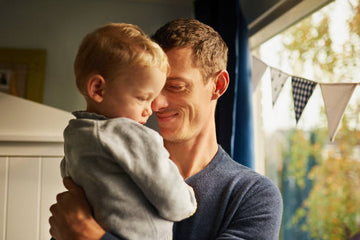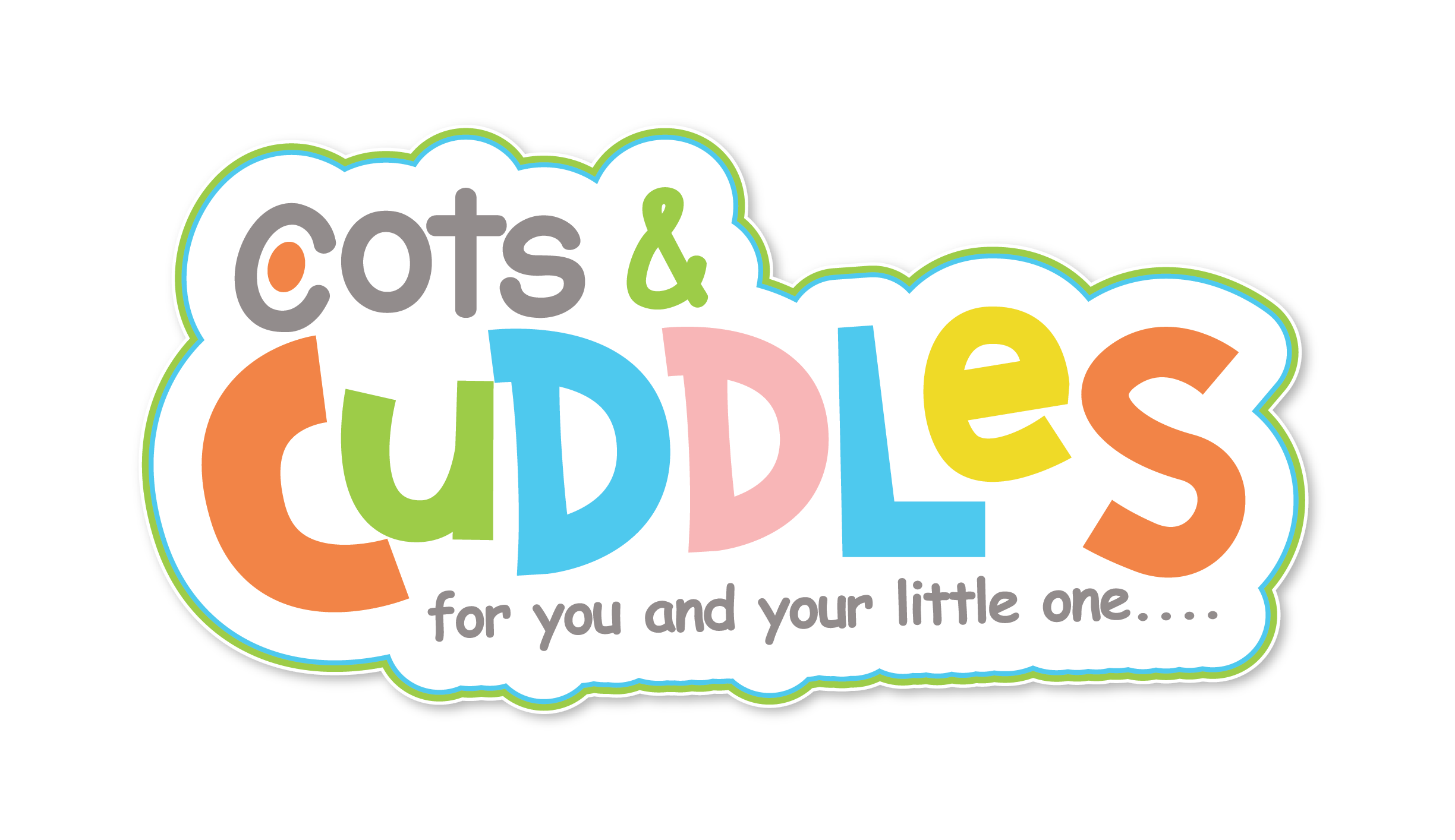Thriving in the Toddler Phase: Empowering Mothers through the Transition
by KIRTI RATHORE on Jun 26, 2023

Introduction:
Transitioning from the baby phase to the toddler phase is an exciting yet challenging time for both children and parents. The journey from infancy to toddlerhood marks a significant period of growth and development, filled with new discoveries and milestones. However, this transition also brings its fair share of difficulties and adjustments, particularly for mothers who play a crucial role in nurturing their young ones.
During this time, children experience notable changes in their physical, cognitive, and emotional development. They go from being dependent infants to becoming more independent explorers, eager to interact with the world around them. It is essential to acknowledge the challenges that mothers face during this particular stage of their child's life. Mothers often find themselves navigating uncharted territory as they encounter new situations and hurdles. Understanding these challenges and learning effective strategies to address them can greatly benefit both mothers and their growing toddlers.
In this blog, we will delve into the various problems commonly encountered by mothers during the transition from baby to toddler. By exploring each challenge in detail, we aim to provide valuable insights and practical solutions to help mothers navigate this significant phase more smoothly. Through comprehensive research and experience, we will outline the physical changes that toddlers undergo, such as the development of gross and fine motor skills. We will also discuss their cognitive growth, including language development and problem-solving abilities. Furthermore, we will address the specific challenges faced by mothers during this transition. Separation anxiety, sleep issues, feeding difficulties, and behavioral changes, including tantrums, are some of the common obstacles that mothers encounter. By understanding these challenges and providing effective coping strategies, we aim to empower mothers to overcome these hurdles and build strong relationships with their growing toddlers.
Moreover, this blog will emphasize the importance of routines, communication, positive reinforcement, and seeking support during this phase. We will delve into the significance of establishing consistent routines, effective communication strategies, and the role of positive reinforcement in shaping desired behaviors. Additionally, we will emphasize the importance of seeking support from family, friends, or parenting groups, as well as prioritizing self-care for mothers during this transition. By addressing each aspect of the baby to toddler transition and providing practical guidance, this blog aims to equip mothers with the necessary knowledge and tools to navigate this journey successfully. With patience, love, and a supportive environment, mothers can embrace this transformative time and provide the best possible care for their growing toddlers.
Understanding the Baby to Toddler Transition
Language development during this phase is particularly noteworthy. Toddlers start to expand their vocabulary and express themselves through words and gestures. They understand and respond to simple instructions, engage in basic conversations, and show a growing ability to communicate their needs and desires.
Understanding these physical, cognitive, and language changes is crucial for parents, especially mothers, as they can adapt their caregiving strategies to support their child's development. By recognizing and encouraging their toddler's emerging abilities, mothers can create an environment that fosters growth and exploration.
1.1 Definition and Overview:
The transition from babyhood to toddlerhood is a critical period in a child's development. It typically occurs between the ages of 1 to 2 years and marks significant changes in various aspects of a child's growth. During this phase, babies undergo remarkable physical, cognitive, and emotional transformations, setting the stage for their journey into early childhood.
1.2 Physical Changes:
As babies transition into toddlers, they experience notable physical changes. This includes the development of gross motor skills, such as crawling, walking, running, and climbing. Toddlers become more mobile and start exploring their surroundings with increased independence. Fine motor skills also develop during this time, enabling them to grasp objects, feed themselves, and engage in more intricate tasks.
1.3 Cognitive and Language Development:
The baby to toddler transition is a period of rapid cognitive and language development. Toddlers begin to exhibit enhanced problem-solving skills, memory retention, and a deeper understanding of cause and effect. Their curiosity and exploration lead to significant cognitive growth as they actively engage with their environment.
Challenges Faced by Mothers during the Transition
The transition from baby to toddler brings about various challenges for mothers as they navigate their child's development and changing needs. Understanding and addressing these challenges is essential for mothers to provide optimal care and support during this crucial phase of their child's life.
By acknowledging and addressing these challenges, mothers can navigate the baby to toddler transition with greater ease. Through understanding, patience, and implementing effective strategies, mothers can provide the support and guidance necessary for their growing toddlers to thrive during this significant developmental phase.
2.1 Separation Anxiety:
One of the common challenges faced by mothers during the transition is separation anxiety experienced by toddlers. As they become more aware of their surroundings and form stronger attachments, toddlers may exhibit distress and anxiety when separated from their primary caregivers, usually their mothers. This can manifest as clinginess, crying, and resistance during separations, which can make daily routines and activities challenging for both mother and child.
To overcome separation anxiety, mothers can employ various strategies. Gradual separation, such as leaving the child with a familiar caregiver for short periods, can help the toddler develop a sense of security. Establishing consistent routines and rituals, like saying goodbye with reassurance and providing comfort objects, can also offer a sense of predictability and comfort to the child. Engaging in activities that promote independence and gradually expanding social interactions can further help toddlers build confidence and reduce separation anxiety.
2.2 Sleep Issues:
Sleep problems are another challenge that mothers often face during the baby to toddler transition. Toddlers may struggle with settling into sleep, experience night waking, or resist bedtime routines. These issues can disrupt both the child's and mother's sleep patterns, leading to fatigue and frustration.
Establishing a consistent sleep routine is crucial to address sleep issues. Creating a soothing bedtime routine, such as reading a story or engaging in calming activities, can signal to the toddler that it is time to sleep. Ensuring a sleep-friendly environment, including a comfortable bed and a dark and quiet room, can also promote better sleep. Additionally, setting consistent wake-up times and implementing positive sleep associations, such as a favorite blanket or stuffed animal, can aid in establishing healthy sleep habits.
2.3 Feeding Challenges:
Feeding difficulties are another common concern for mothers during the baby to toddler transition. Toddlers may become more selective in their food choices, display neophobia (fear of new foods), or exhibit a desire for independence by refusing certain foods or wanting to self-feed. This can lead to mealtime battles and concerns about proper nutrition.
To address feeding challenges, mothers can adopt a balanced and patient approach. Offering a variety of nutritious foods and modeling healthy eating behaviors can encourage toddlers to explore new tastes and textures. Providing a structured mealtime routine and a calm, positive environment can also promote a healthy relationship with food. Involving toddlers in meal planning and preparation can foster their independence and increase their interest in trying new foods. It's important for mothers to remember that feeding difficulties are often temporary and that toddlers' appetites and food preferences may fluctuate during this phase.
2.4 Behavioral Changes and Tantrums:
Behavioral changes and tantrums are common challenges faced by mothers during the transition from baby to toddler. Toddlers may exhibit defiant behaviors, assert their independence, and have difficulty managing their emotions, leading to tantrums and meltdowns. This can be overwhelming and challenging for mothers to handle. To manage behavioral changes and tantrums effectively, mothers can employ positive discipline strategies. Setting clear and consistent boundaries, offering choices within limits, and redirecting attention can help toddlers understand expectations and develop self-control. Encouraging communication and teaching age-appropriate coping skills, such as deep breathing or using words to express emotions, can also assist in managing tantrums. It's important for mothers to remain calm and patient during these challenging moments, as modeling appropriate behavior and providing reassurance can help toddlers regulate their emotions.
Coping Strategies and Solutions
The baby to toddler transition can be challenging for mothers, but there are coping strategies and solutions that can help navigate this phase with greater ease. In this section, we will explore various approaches that can support mothers in effectively managing the challenges they face.
3.1 Establishing Routines:
Establishing consistent routines can provide a sense of structure and predictability for both mothers and toddlers. A daily schedule that includes regular mealtimes, nap times, playtimes, and bedtime routines can help toddlers feel secure and understand what to expect. Consistency in routines can also promote better sleep patterns, reduce anxiety, and support overall emotional well-being. Flexibility within the routines is important to accommodate the changing needs and development of the toddler.
3.2 Communication and Bonding:
Effective communication and bonding play a vital role in navigating the baby to toddler transition. Maintaining open and clear lines of communication with toddlers can help them express their needs and emotions, reducing frustration and promoting a stronger connection between mother and child. Active listening, using simple and age-appropriate language, and engaging in meaningful conversations can foster language development and deepen the bond with the toddler. Taking the time for one-on-one activities and quality playtime can also strengthen the parent-child relationship.
3.3 Positive Reinforcement and Encouragement:
Using positive reinforcement and encouragement can be powerful tools in shaping desired behaviors and building a toddler's self-esteem. Recognizing and praising small achievements can motivate toddlers to continue engaging in positive behaviors. Specific and genuine praise, along with rewards like hugs, smiles, or verbal affirmations, can reinforce positive actions. Additionally, providing opportunities for toddlers to make choices and be involved in decision-making can foster their sense of independence and confidence.
3.4 Seeking Support and Self-Care:
Transitioning from baby to toddler requires support, and seeking help is not a sign of weakness but of strength. Mothers can reach out to family, friends, or parenting groups to share experiences, seek advice, and gain reassurance. Connecting with other mothers going through similar challenges can provide a valuable support network. It is equally important for mothers to prioritize self-care during this phase. Taking breaks, practicing self-care activities, and nurturing their own well-being enables mothers to better cope with the demands of motherhood and be emotionally available for their toddlers.
By implementing these coping strategies and solutions, mothers can navigate the baby to toddler transition more effectively. Each mother-child relationship is unique, so it's essential for mothers to adapt these approaches to suit their own parenting style and their toddler's individual needs. With patience, understanding, and self-care, mothers can create a nurturing environment that promotes their child's development and supports their own well-being throughout this transition.
Conclusion:
The baby to toddler transition presents its own set of challenges for mothers. However, by understanding the changes occurring during this phase, addressing specific difficulties like separation anxiety, sleep issues, feeding challenges, and managing behavioral changes, and implementing coping strategies and solutions, mothers can navigate this transition successfully. The key is to approach this phase with patience, flexibility, and a focus on maintaining open communication, establishing routines, using positive reinforcement, seeking support, and practicing self-care. With these tools, mothers can provide the necessary support for their toddlers' growth and development while ensuring their own well-being as they embrace the joys and challenges of parenting a growing toddler.
- Anxiety In Motherhood,
- Balanced Parenting Approach,
- Conflicting parenting advice,
- Conflicting parenting styles,
- Evidence-based parenting,
- EvidenceBasedParenting,
- Mental health in parenting,
- Mindful parenting,
- MindfulParenting,
- Motherhood,
- Motherhood challenges,
- Motherhood Struggles,
- Motherhood Support,
- New Parenting Challenges,
- Parenting,
- Parenting advice,
- Parenting challenges,
- Parenting confidence,
- parenting groups,
- Parenting insights,
- Parenting journey,
- Parenting resources,
- Parenting responsibilities,
- Parenting self-care,
- Parenting skills,
- Parenting strategies,
- Parenting styles,
- Parenting support,
- Parenting tips,
- Parenting transition,
- ParentingAdvice,
- ParentingChallenges,
- ParentingJourney,
- ParentingMilestones,
- ParentingSkills,
- ParentingStyles,
- ParentingSupport,
- ParentingTips,
- PositiveParenting




